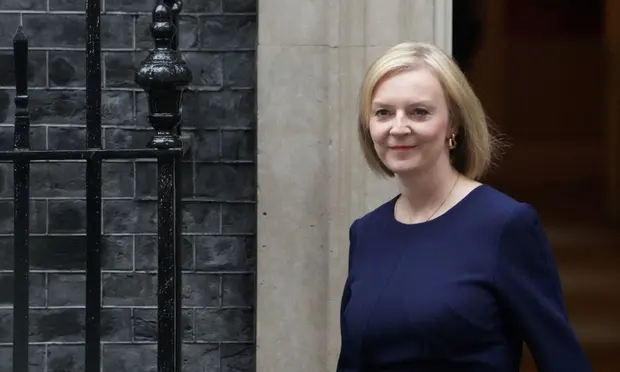Liz Truss has insisted her government’s economic policy is on the right course despite the need for emergency intervention from the Bank of England, saying she was “prepared to take difficult decisions” and would not change policy.
In a round of interviews with BBC local radio stations, her first public statements since warnings from the International Monetary Fund and the bank’s intervention to prevent a run on pension funds, the prime minister said people would feel the benefits in the longer term.
“This is the right plan that we have set out,” Truss told BBC Radio Norfolk. “Of course there will always be people who will oppose a particular measures. And it’s not necessarily easy. But we have to do it.”
Pressed repeatedly by the presenters about why her government had cut taxes primarily for richer people in Friday’s mini-budget despite inflationary pressures, prompting a decline in the pound and a rise in the cost of government debt, Truss rejected any idea of error.
“Of course, some of these decisions are difficult,” she told BBC Radio Lancashire. “Some people don’t like them. But what I couldn’t do is allow the situation to drift. So that is why my government has taken urgent action.”
With a number of Tory MPs openly mutinous ahead of next week’s Conservative party conference in Birmingham, Truss tried to argue that the issues faced by the UK were little different to those of other countries.
“This is a global problem,” she told BBC Radio Kent. “But what is absolutely right as the UK government stepped in and acted at this difficult time. We’ve seen difficult markets around the world because of the very difficult international situation we face. And what our government has done is we’ve taken decisive action.”
Stressing that the biggest part of the mini-budget involved help for energy bills, Truss said the government had sought to both curb inflation and help set “a better trajectory for the long term” with growth and wages.
She said: “Of course, that involves taking difficult decisions and as prime minister, I’m prepared to take difficult decisions and do the right thing.”
There is increasing speculation that ministers could seek significant cuts to public spending to help balance the loss of revenue from tax cuts, which will disproportionately assist richer people.


